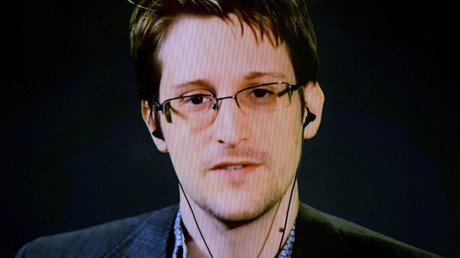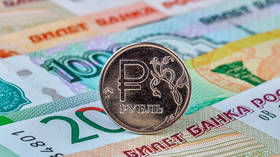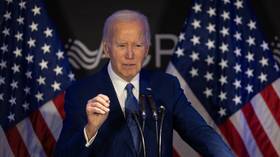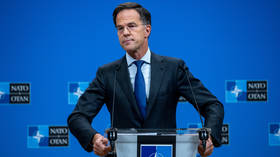Dutch police bust encrypted comms provider with 19k users

Dutch police have arrested the head of a local encrypted communication provider which operates the data of some 19,000 users on charges the firm was involved in “serious criminal activity.” Police say it distributed modified phones that later emerged in gang offenses.
Danny Manupassa, 36, the boss of Ennetcom, company at the center of the unfolding scandal, was arrested Friday and charged with money laundering and unlawful possession of weapons. His company is suspected of enabling organized crime via encrypted channels with the use of its own services.
"Police and prosecutors believe that they have captured the largest encrypted network used by organized crime in the Netherlands," the prosecutor’s office reported in a statement, according to Reuters. Although, the company`s customers are mostly Dutch residents, its operational capacities are located in Canada’s jurisdiction.
The Canadian Department of Justice confirmed that the investigation had been launched into Ennetcom’s activities after Dutch law enforcement announced it had sought assistance of their Canadian counterparts to copy the data kept on the Ennetcom servers.
A spokesman for the Dutch prosecutor’s office, Wim de Bruin, said that the obtained data would allow them to proceed with Manupassa’s criminal probe and shed light onto the already existing investigations into criminal offenses, such as criminal activities of biker gangs, gang-motivated murders and drug-related crimes.
While providing details on the alleged crime scheme, law enforcement said Ennetcom “sold modified telephones for about 1,500 euros” that “could not be used to make calls or use the Internet." Such devices are commonly used to facilitate organized crime.
Ennetcom has retaliated with a defiant statement on its website, accusing prosecutors of intentionally subverting its operations. “Previously there have been attempts to put us down, amongst them the Dutch intelligence service, but they never succeeded,” reads a statement, accompanied with a link to the WikiLeaks archives.
Ennetcom also announced that it had been forced to suspend all its operations and services for the duration of the investigation, while stressing that “it should be clear that Ennetcom stands for freedom of privacy!”
While the Dutch authorities are clamping down on encryption use by the general public, in neighboring Germany, the Interior Ministry gave federal police the opportunity to use a special Trojan virus to hack the computers and smartphones of their suspects, giving them almost unlimited opportunities to conduct surveillance on them in February.
The malware, which was specially developed by the German Federal Criminal Police Office, functions similarly to a typical virus used by hackers, according to Deutsche Welle. It allows officers to infiltrate a targeted device and access its files and also makes it possible for them to spy on a suspect’s communications, including e-mails or conversations conducted via phone or programs such as Skype.
NSA whistleblower Edward Snowden has been one of the most vocal critics of governments waging war on encryption. In November, he voiced his opposition to the UK’s Investigatory Powers Bill, which he says will give the authorities access to “the activity log of your life.”
Meanwhile, Snowden said in March that the FBI’s claim that it needed tech giant Apple to unlock the iPhone used by one of the San Bernardino terrorists is a lie.
The FBI tried to convince a federal judge to compel Apple to write a custom operating system with intentionally weakened security mechanisms. Apple refused to do so, and said that it is willing to take the fight to the Supreme Court.
“The FBI says Apple has the ‘exclusive technical means’ to unlock the phone,” Snowden told the audience from Moscow. “Respectfully, that’s horsesh*t.”
Snowden has previously applauded Apple for its defense of privacy and strong encryption, even before their current battle with the FBI.
“We should support vendors who are willing to [say], ‘You know, just because it’s popular to collect everybody’s information and resell it to advertisers and whatever, it’s going to serve our reputation, it’s going to serve our relationship with our customers, and it’s going to serve society better. If instead we just align ourselves with our customers and what they really want, if we can outcompete people on the value of our products without needing to subsidize that by information that we’ve basically stolen from our customers',” he told TechCrunch in June, months before the December massacre in San Bernardino. “That’s absolutely something that should be supported.”
















